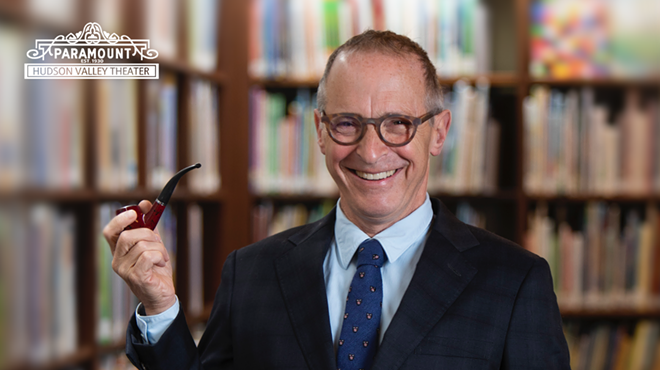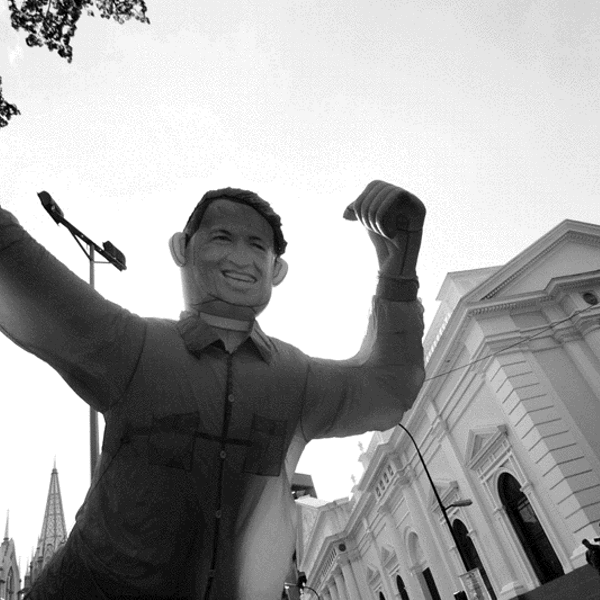Por Ahora
According to Richard Gott in his book In the Shadow of the Liberator: Hugo Chavez and the Transformation of Venezuela, Chavez’s going so far as to imply that the coup might have better luck in the future turned him into a national hero, celebrated across Venezuela in song and poetry. “The phrase ‘for the moment,’ por ahora, caught the popular imagination. The aims of the rebellion had not been secured, but most people read his message optimistically, as a sign Chavez would return to the struggle at a later date. Por ahora became his trademark slogan.”
For their roles in the coup attempt, Chavez and other leaders were given long prison sentences, yet Chavez served only two years. During his imprisonment, he continued to organize. In 1993, Pérez was accused of corruption and removed from power through what was called a “congressional coup.” New elections were held in December of 1993, and the winner, Rafael Caldera, had Chavez released from prison the following March.
At first, jaded by the political corruption he had witnessed, Chavez was opposed to participating in the electoral process. By 1997, he began to change his view, and in November of 1998 Chavez ran for and won the presidency with 56 percent of the vote. He was reelected in July of 2000. His policies, hugely popular among the poor and working class, have angered business and financial leaders in his country and even more powerful opponents abroad. At the root of the conflict is how Venezuela’s economy is to be managed.
“Venezuela may enjoy huge oil revenues, [but] these are rapidly mopped up by a tiny percentage of the population,” writes Gott. “The great majority of the country is permanently poor and hungry. While the top 10 percent of the population of 23 million receives half the national income, 40 percent, according to an estimate in 1995, live in ‘critical poverty.’ An estimated 80 percent, according to the figures of 1996, earn the minimum wage or less. As if this was not enough, this situation has been growing dramatically worse. Real purchasing power declined 35 percent between 1989 and 1995.”
Fidel, Moammar, and Saddam
While Venezuela is one of America’s most important trading partners—if only because of unequal importance of the oil sector—it is also one of Cuba’s. Chavez’s close relationship with Fidel Castro, often described as a friendship, is but one sign of the defiant way he swims against the mainstream of neoliberal and neoconservative ideology. Chavez’s revolutionary attitude is intended to suggest a connection to the historic struggle of the revolutionary movements of Che Guevara and Castro. While visiting Cuba in 1999, Chavez told Castro, “Here we are…Fidel and Hugo, fighting with dignity and courage to defend the interests of our people, and to bring alive the ideas of Bolivar and Marti.”
And if that isn’t reason enough to earn him a place on Washington’s hit list, Chavez also has ties to Libyan President Mommar Quadaffi. And in August of 2000 he met with now-deposed Iraqi president Saddam Hussein, defying the us by being the first head of state to visit Iraq since the 1991 Gulf War.
At home, Chavez’s opponents include business leaders, the mainstream media, and the upper echelon of the Catholic Church (96 percent of Venezuelans are Catholic). They have used extreme tactics to attempt to end his rule. In April 2002, while an American naval ship floated not far off shore, a short-lived coup took place in which Chavez was removed from power for three days. As depicted in the recently released documentary The Revolution Will Not Be Televised, during this brief time Chavez never relinquished the presidency to his captors. Yet opposition leader and Chamber of Commerce head, businessman Pedro Carmona, swore himself in as president, and the segment of the military that supported Carmona announced Chavez’s “resignation”. Palace guards and loyalists within the Venezuelan military, supported by the masses from the barrios, took back control of the government, arrested opposition leaders, and brought Chavez back to the palace amid much fanfare and relief.












